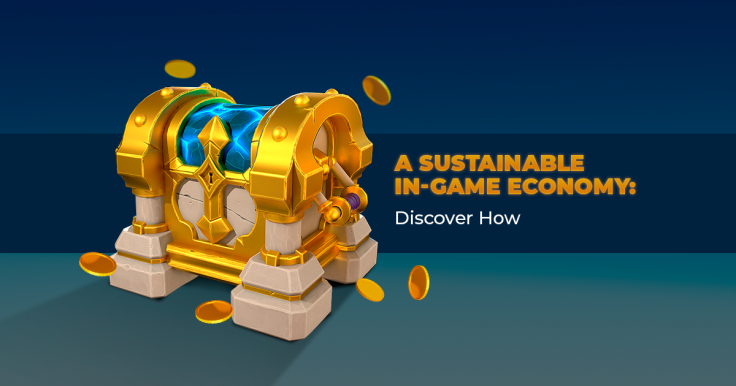
Game development should be profitable - it's the basis of making the whole magic possible and to open the gates for further exciting projects. With the evolution of game culture, we've got new standards in various aspects of gaming, from the most relevant gameplay principles to the best ways to ship gaming products to end-customers. Similar changes should happen in the area of monetizing games.
The traditional scheme to charge money just for the possibility of playing a game is not always the most efficient nowadays. It's hard to sell enough copies in such an overcrowded market. Perhaps this is why the popular free-to-play scheme is not so easy to adopt successfully without ruining the playing experience.
Although, when a problem appears in the industry, it quite soon gets a solution. Finally, we have one, hopefully the development companies may take it and use it.
Find your players
Creativity should always be included during the development process - this is a recipe for creating masterpieces. But of course, it's wise to consider the needs and preferences of the users as well. Games as a service have become a modern phenomenon and they are not going to evaporate - this trend is still gaining power. People love the feeling of already knowing the rules and environment so that they can enjoy playing sessions without spending time on tutorials and learning the lore. Ongoing games are very popular - this includes huge esports titles and casual games for mobile devices.
It's quite easy to ship such games to players. Thanks to Steam, Google Play, App Store, PlayStation Store, and other platforms for digital distribution, game developers have good alternatives to partnering with publishers. This is one of the trends, highlighted in the recent report by Newzoo. Although, marketing may be the tricky aspect here. This is one of the most powerful advantages of the publishers, yet the industry offers a good alternative.
A sustainable economy
Ongoing games need constant investment in support and content development. Even selling such games is not a sufficient income. According to Superdata, free-to-play titles were incredibly successful in 2019 and earned 80% of the whole revenue when it comes to digital games. Would you like to get your product involved in such statistics and get a slice of this pie? Then you need to build an internal economy.
What players pay if they can play a game for free? Various additional content is a nice source of regular profit for games as a service, and the most effective type is cosmetic items. It's a good source of income for games such as Fortnite, Apex Legends, and Dota 2. Cosmetics can be integrated into almost any game without negative effects on gameplay. Still, it's easier said than done.
When it comes to the professionals, Forbes highlights some from this specific business that have more than 10-years of experience in trading in-game items. In 2017, these people founded DMarket, a solution for building an items-based economy for game developers. Players use this project as a marketplace of digital assets. For the development companies, DMarket offers a tool to make their games profitable. In fact, this is a possibility to be focused on when it comes to creative ideas in gameplay and the use of a 3rd-party solution for economic development.
DMarket has a large audience of dedicated gamers and traders, so partnering with this project is also a boost for any marketing campaign. Imagine offering players the possibility to trade items for real money or to exchange them on items from other games. This step automatically increases the active audience and motivates players to invest time, energy, and money in the game.
On February 11-13, game developers have a chance to meet both the CEO and VP Business Development of DMarket at D.I.C.E. Summit 2020 in Las Vegas. It's a perfect chance to discuss new opportunities for your game and allow your business model to evolve to be a part of the top level of this ever-changing gaming industry.









